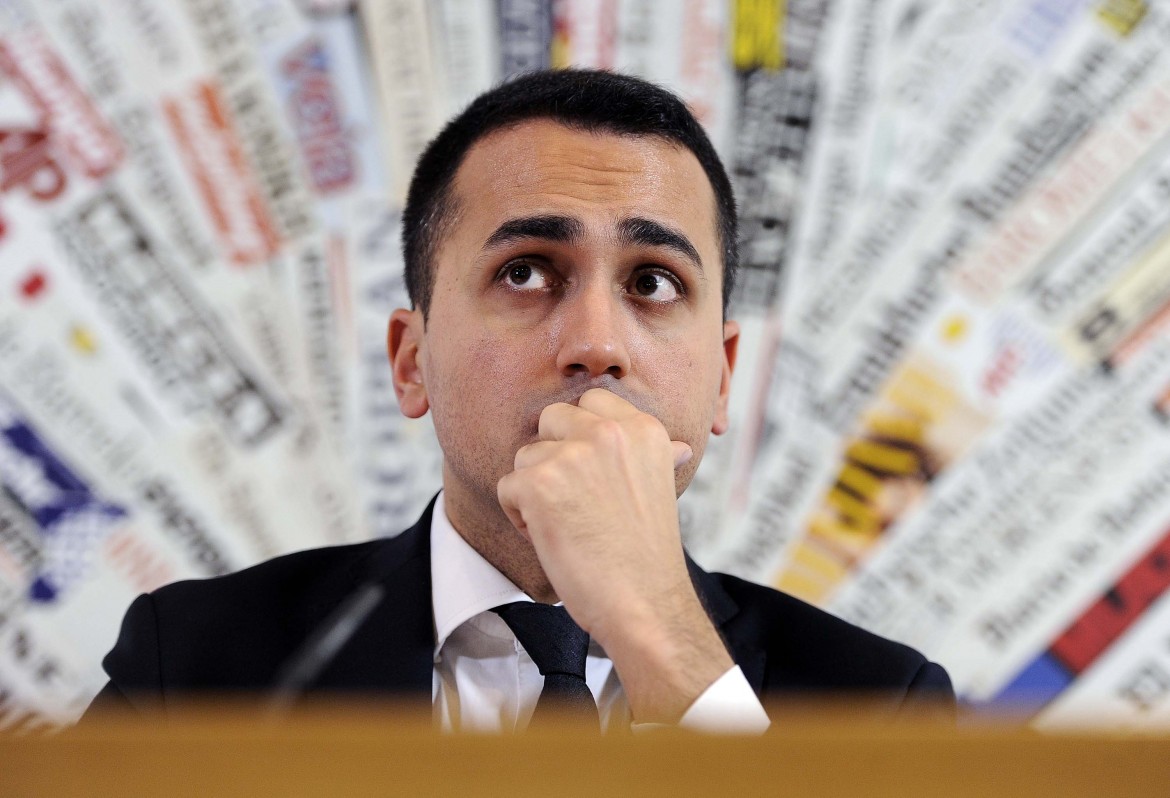Report
Council of Europe singles out M5S for ‘insidious muzzle’ on the press
On World Press Freedom Day, the Council of Europe released a report on freedom of expression in which it warned of ‘financial pressures, favoritism and other forms of indirect manipulation of the media.’ A march supporting Radio Radicale is scheduled for Sunday in Rome.

Their successful campaign to bring down the axe on public subsidies to publishers, the offensive language they’ve used against journalists, the promise of further financial restrictions, their aggressive intervention to stop public companies from advertising in the daily newspapers—all of that is more than enough for anyone to be able to tell exactly who is trying to destroy the freedom of the press in Italy. This time, it’s not il manifesto or Radio Radicale calling them out, but no less than the Council of Europe, which just published its “Freedom of Expression in 2018” report, analyzing the status of this freedom in all EU countries.
In the report, the Council—which will celebrate 70 years of activity this year—outright accuses Vice-Prime Minister Luigi Di Maio of using “insidious muzzles” to silence the Italian media. Moreover, a few days ago, the updated press freedom rankings published by Reporters Without Borders had Italy down to 43rd place out of 180.
“The right of individuals to form, hold and express their opinions without undue interference … is crucial for the realization of all other human rights,” the Council writes.
In its 22-page report, published on the occasion of World Press Freedom Day on Friday, the Council, the leading European organization fighting to defend human rights, whose members include all 47 states (including the 28 current members of the EU) that have signed the European Convention on Human Rights, stressed the overall increase in threats against journalists over the past five years.
In the third chapter, on the independence of the press, the report drafted by the Council’s Information Society Department warns that “financial pressures, favoritism and other forms of indirect manipulation of the media can be equally insidious muzzles and are increasingly used by politicians of all stripes.” The report mentions Serbia and Italy as two of the most egregious examples of this.
In the case of Italy, the report writes that the “deputy prime minister and leader of the Five-Star Movement called on state-owned companies to stop advertising in newspapers, and announced plans for ‘a reduction of indirect public contributions’ to the media in the 2019 budget.” In fact, as we know, even worse things have happened since then: with the latest budget law, the so-called “Lotti reform” has gone into effect, which also eliminates direct contributions for media pluralism by 2022.
These massive cuts will not kill off the publicly-traded “big media” that the populist Five Stars profess to hate so much, but only a long list of local newspapers, outlets dedicated to political and linguistic minorities, daily newspapers published by religious organizations (including l’Avvenire), and media outlets put out by “pure publishers” (uninvolved in other businesses), such as the cooperative that publishes il manifesto and other journalist cooperatives.
The Council of Europe notes the alerts it received from Italy: for instance, in November 2018, “Deputy Prime Minister Di Maio and former MP Battista insulted journalists,” and the former “published a social media post containing insulting language against Italian journalists and calling for new legal restrictions on publishers.” Once again, during the time that passed between the writing of the report and its publication, the Italian government actually managed to do more damage than the two Five Star leaders were threatening, as it has also cancelled MISE’s contract with Radio Radicale for the broadcasting of parliamentary sessions.
Radio Radicale, whom some have been disparaging as “the mouthpiece of Marco Pannella’s party,” had been providing this service non-stop for 43 years, after they won a public tender, the only one that was organized and which never needed to be renewed. But the M5S and their man in charge of dealing with publishers, Undersecretary Vito Crimi, seem uninterested in the facts of the matter.
However, two regional institutions spoke up yesterday against the closure of Radio Radicale: the Sicilian Regional Assembly (SRA) and the Regional Council of Tuscany approved two separate motions “in defense of a piece of the history of Italian democracy,” according to the text of the document voted unanimously by the SRA.
Meanwhile, in the Senate, the Democratic Party has announced plans to introduce a series of amendments to the growth decree to extend the state contract with Radio Radicale until Dec. 31 and then hold a new tender. Furthermore, many who support Radio Radicale will be marching on Sunday in Rome, starting in Piazza Mattei at 7 p.m.: those who have announced their presence so far are the FNSI, Articolo 21, the Roman Printers’ Association, the Jewish Community of Rome and the Community of Sant’Egidio. They all stand with Rita Bernardini and Maurizio Bolognetti, who have been on hunger strike for weeks.
The motion by the Regional Council of Tuscany, introduced by the Democratic Party and approved by all except for the M5S representatives who abstained, also calls for the regional government to take action “so that the activity of providing public funding for the publishing industry would not be interrupted.” However, to be frank, the Tuscan councilmembers cut a rather lonely figure with this initiative, especially in the landscape of the center-left. This was shown clearly yesterday by the deafening silence with which the direct accusations by the Council of Europe were met in Italy. “Those who used to march with gags in their mouths, where are they today?” asked the Vice-President of the Chamber of Deputies, Mara Carfagna (Forza Italia). It’s hard to argue with that.
Originally published at https://ilmanifesto.it/il-consiglio-deuropa-di-maio-minaccia-la-liberta-di-stampa/ on 2019-05-03
